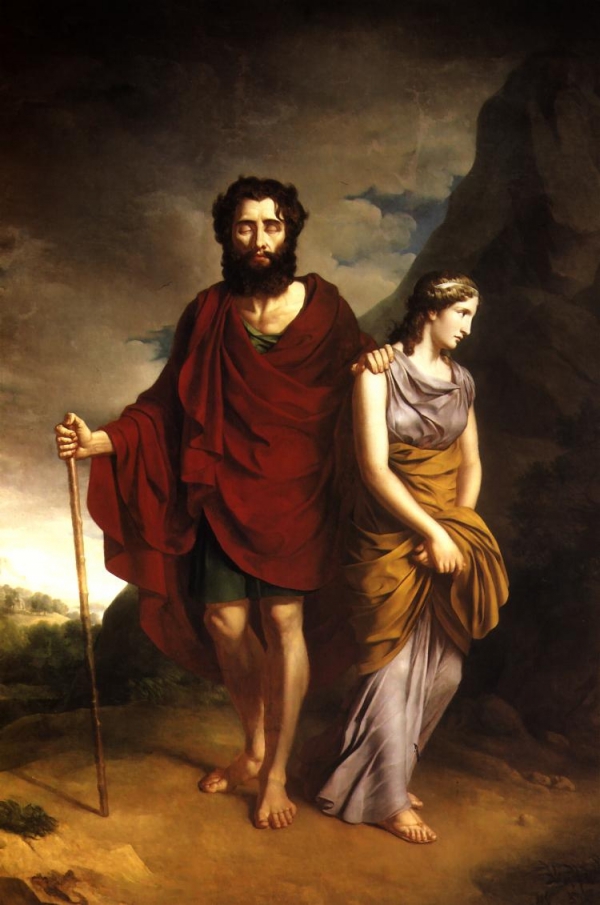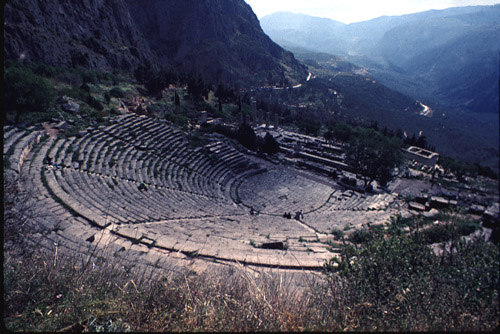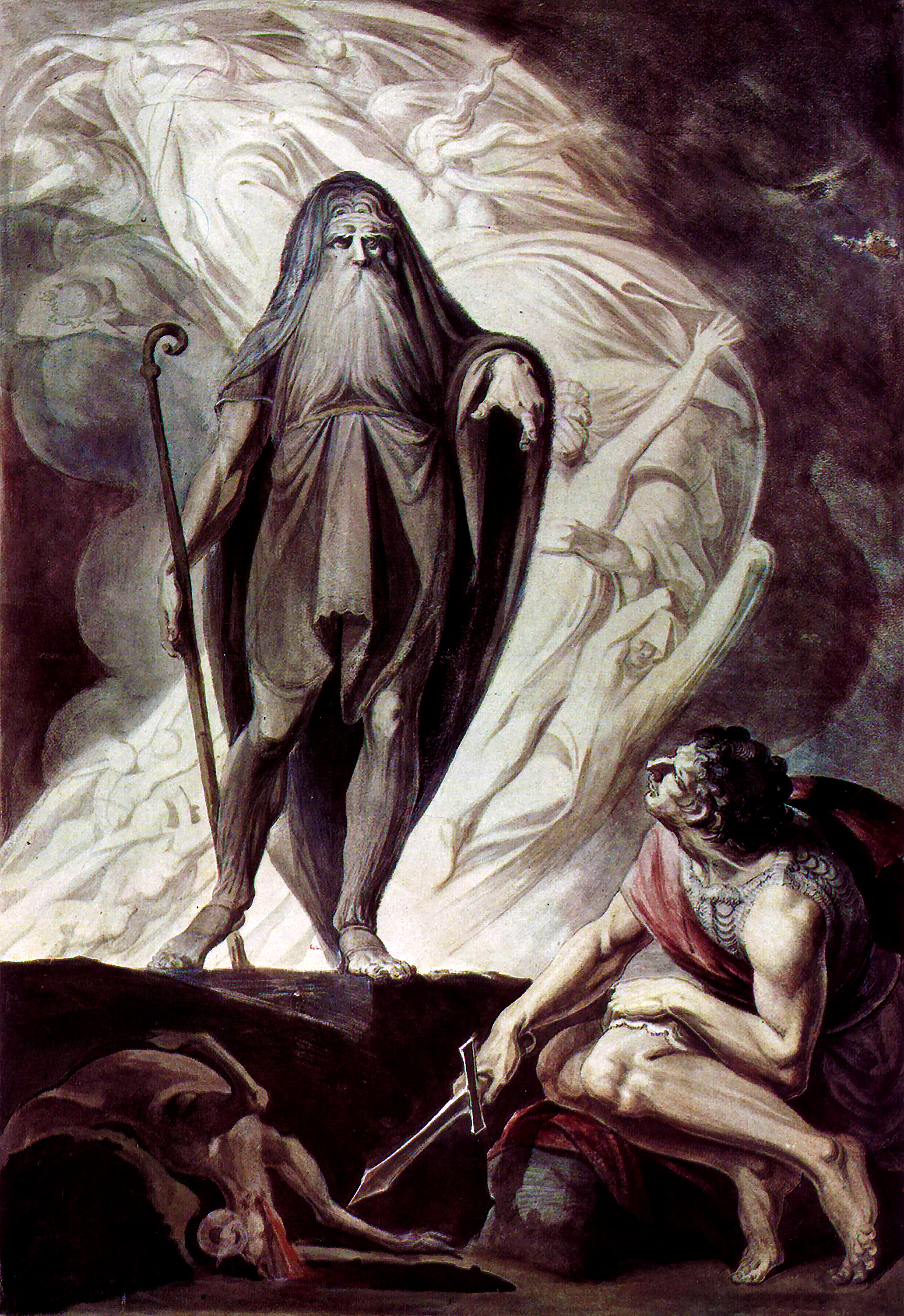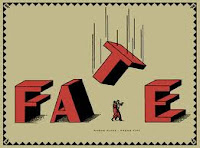
- Man
Oedipus Rex is a character in Greek mythology. He is originally the song of King Laius and Queen Jocasta. After a fateful prophecy from the Oracle of Delphine, where it stated that he would kill his father and marry his mother, Oedipus is sent away. After many years of no contact, he come back, only to unknowingly kill his father in a fight and marry his mother with whom he bore two children. He is the mythical king of Thebes and is said to represent two themes: the flaw in humanity and the course of destiny in a universe.
The play of Oedipus Rex was a play that was played during the christening of Dionysus, the Greek god of wine, in ancient Greek times. Originally being written by Sophocles, the play, which has been made into different versions all across the globe, centers around the main themes of fate and human flaw. To a certain extent, the play has also been used in political cases, where many politicians believe the Oedipus has done these deeds of killing his father and marrying his mother because of his desire for power.
- Myth
In Greek mythology, Oedipus is the true mythic king of Thebes, the city in which he kills his father and marries his mother. As myth says, Jocasta, his wife and mother, kills herself after finding out about her actual relationship with Oedipus. After years of ruling Thebes, Oedipus dies at Colonus, a town near Athens, and was swallowed by the Earth to become a guardian hero of Greece.
Greek Theater



Ancient Greek theaters were very large, open-air structures that took advantage of sloping hillsides for the terraced seating. The audience sat in the theatro, the "seeing place", on semi-circular terraced rows of benches. The core of any Greek theater is the orchestra, the "dancing place" of the chorus and the cheif performance space. Masks served several important purposes in Ancient Greek theater. The masks' exaggerated expressions helped define the characters the actors were playing and they allowed actors to play more than one role and/or gender.
Sophocles

Sophocles was born 496 BC in Colonus (a city near Athens) and died 406 BC in Athens. He was wealthy from birth, highly educated, and noted for his grace and charm. He is one of Athens' greatest tragic playwrights. The best know of his 123 dramas is Oedipus Rex.
Dramatic Irony
dramatic irony is a literature device in which the audience has knowledge of information that the characters do not know. The words and actions of the characters therefore take on a different meaning for the audience than they have for the play's characters. Dramatic irony is a common plot device in many plays, including Romeo and Juliet and Oedipus Rex.
Aristotle
Aristotle (384 BC- March 7 322 BC) is a Greek philpsopher. He is one of the most important philosophers in the history of Western civilization. It is said Aristotle wrote hundreds of books, but only a much smaller number survive.
- Tragedy

“A tragedy is the imitation of an action that is serious and also, as having magnitude, complete in itself; in appropriate and pleasurable language;... in a dramatic rather than narrative form; with incidents arousing pity and fear, wherewith to accomplish a catharsis of these emotions.” - Aristotle. Aristotle said that tragedy has six main elements: plot, character, thought, diction, melody and spectacle. Aristotle was a great admirer of Sophocles' Oedipus Rex because he thought it was the perfect tragedy and the play fit his analysis perfectly.
"Hubris consists in doing and saying things that cause shame to the victim... simply for the pleasure of it. Retaliation is not hubris, but revenge... Young men and the rich are hubristic because they think they are better than other people." - Aristotle. In ancient Greece, the word hubris was used to describe actions of those who challenged the gods or their laws, especially in Greek tragedy, resulting in the protagonist's downfall.Aristotle believed that people indulge in crimes only to fulfill their basic desire to make themselves feel superior to others.
Teiresias

Teiresias was the son of Everes, and was also a blind prophet. According to Greek mythology, he was the most famous soothsayer of all ancient Greece. He was made blind by Here when he sided with Zeus over an argument. He makes appearances in Greek mythology a lot, usually being affiliated with the Oracle of Delphi.
Fate

Fate is a literary device that is used in almost all literature. A lot of times, fate is an outside force acting independently, and is also something that we have no control over. Additionally, we see that fate is often something that can change the entire plot line of the story. Many religions across the world believe that fate is something being controlled by a supreme being such as a god.
No comments:
Post a Comment